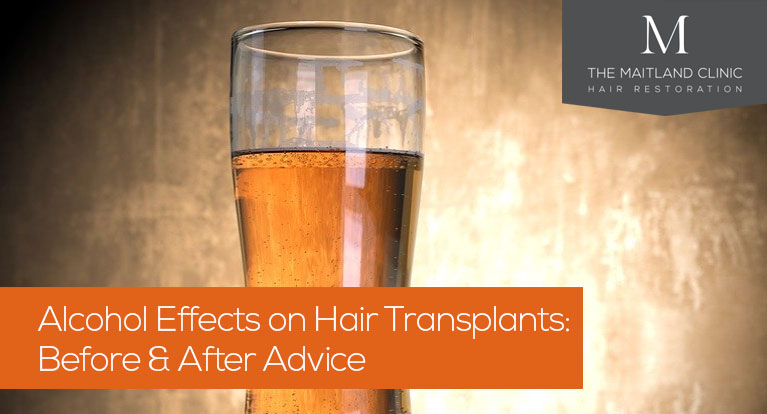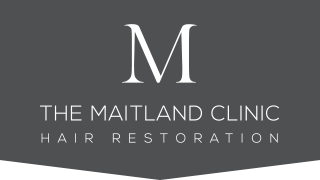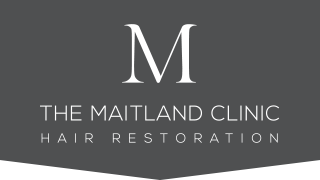Alcohol after a hair transplant (drinking after surgery)
4th June 2020

Undergoing a hair transplant is a significant, often life-changing step, so you’ll naturally want to maximise the chances of its success. To do this effectively, you will need to avoid drinking alcohol before and after your surgery. This post explains the affects of alcohol after a hair transplant and includes before and after advice to help you get the most from your treatment, but most importantly, about drinking alcohol after a hair transplant.
Drinking alcohol after a hair transplant (can I drink beer after)
It is not recommend that you drink alcohol after a hair transplant procedure, that includes any strength of beer after hair transplant surgery or spirits. Drinking after a hair transplant can jeopardise the success of the treatment, as it increases the risk of developing complications during and after surgery. It can also threaten the survival of the implanted hair grafts.
For these reasons, patients are advised to avoid consuming alcohol for a period of time before and after a hair transplant.
How long after a hair transplant can you drink alcohol?
To give the new hair grafts the best chance of success and to improve the likelihood of a fast and trouble-free recovery, it’s best to avoid alcohol for 10 days after a hair transplant. If you choose to drink alcohol before this, we suggest that it’s restricted to very limited amounts.
While alcohol consumption isn’t recommended after a hair transplant, it’s important to stay hydrated. Drinking plenty of water during the recovery period helps to promote healing in the transplanted area and encourages optimum growth of the hair grafts. Other non-alcoholic beverages such as tea, fruit juice and squash can also help you to maintain healthy levels of hydration following your surgery.
When can I drink alcohol after FUE hair transplant?
As with any hair transplant procedure, our advice is the same. Avoid drinking alcohol and beer at least ten days after an FUE hair transplant surgery and during this critical time in the healing process. FUE hair transplants are delicate procedures, and you want to give yourself the best chance of recovery and success by eliminating any risks.
The effects of alcohol after a hair transplant
So, why is alcohol consumption prohibited before and after a hair transplant recovery period? Consuming alcohol in the days surrounding a hair transplant, whether that’s red wine, whiskey or any other alcoholic beverage, can threaten the success of your treatment for several reasons. Here are just some of the possible effects of alcohol after a hair transplant:
- It thins the blood: drinking alcohol has been shown to thin the blood. If the blood is thin, patients are more likely to bleed during their surgery, which can make the procedure more difficult. What’s more, if the scalp continues to bleed excessively after surgery, the treated areas will form more scabs and it will take significantly longer for the signs of surgery to resolve. This can result in a more prolonged recovery process.
- It leads to swelling: alcohol causes our veins to dilate, which can lead to more swelling of the head. This may negatively impact the success of a hair transplant and can increase the discomfort experienced in the early days after surgery.
- It dehydrates the body: it also has a diuretic effect on the body, meaning our kidneys produce more urine, flushing more water from the body. As a result, our skin becomes drier and dehydrated, which can hinder the health and survival of the grafts.
Of course, it’s also best to avoid drinking alcohol if you are taking painkillers which can cause sedation, including those that might be given after your treatment.
Watch our video for more information on how simple diet and lifestyle changes can help to make your hair transplant a success.
How a hair transplant works
To appreciate the effects of alcohol on a hair transplant, it’s important to first understand what happens during the surgery itself.
The two surgical hair restoration methods offered at The Maitland Clinic are known as Follicular Unit Transplantation (FUT or Strip) and Follicular Unit Excision/Extraction (FUE hair transplant). The main difference between the two techniques is the way in which the donor hair is harvested, but both procedures are capable of producing great, natural-looking results.
During the FUT process, the surgeon removes a healthy strip of hair-bearing skin from the donor area, usually from the back of the patient’s own head. The strip is then divided into tiny grafts of individual follicular units comprised of one to four hairs. In the FUE procedure, however, the donor area of the scalp is shaved and follicular unit grafts are excised individually from the scalp, using a 0.8mm to 1mm ‘punch’.
In both cases, our leading surgeon and world-renowned hair restoration expert, Dr Edward Ball, makes tiny incisions in the recipient areas using specialist blades of 0.6mm to 1.1mm, depending on the patient’s skin texture and the size of the grafts. This stage determines the distribution and direction of growth of the new hair. Dr Ball’s highly skilled team of technicians then implant the hair grafts into the balding areas of the scalp. Every step is performed with great care, precision and artistry to create a natural look that’s unique to each patient.
FUT surgery leaves a linear scar, which usually requires hair to be worn at grade four or longer to be concealed. Following FUE, there will be a series of tiny dot scars in the donor area of the scalp, but these are barely visible to the naked eye.
You can read more about the FUT and FUE techniques on our website.
After your surgery
The newly-implanted grafts are very delicate and should not be touched for the first five days of the healing process. Your scalp may also be slightly swollen and there will be some scabbing, although this should clear by the tenth postoperative day.
Although a hair transplant is relatively painless, it’s still a serious medical procedure. Proper care is therefore required to protect your general health, as well as your new hair grafts. This includes abstaining from alcohol consumption in the weeks surrounding your surgery.
Can I drink alcohol before a hair transplant?
To increase the chances of a straightforward recovery and great, natural-looking results, it’s important to follow your surgeon’s advice when it comes to diet and lifestyle. A little dedication and commitment before your surgery could pay dividends in the long run.
As part of our recommendations, we encourage patients to avoid drinking alcohol in the week leading up to the surgery. This gives your body time to process any alcohol already in your system and allows your blood pressure to return to its normal level. Crucially, it helps to reduce the risk of complications and gives your hair transplant the best possible chance of success.
We also advise that patients refrain from consuming spicy food, garlic, caffeine and multivitamins in the week before their hair transplant. Like alcohol consumption, these have all been shown to affect the blood supply to the scalp. In addition, we recommend that patients avoid strenuous exercise in the few days preceding their surgery.
Patients that smoke should quit as soon as possible before their treatment, and ideally refrain from smoking for as long as possible afterwards, as smoking can damage the new hair grafts (you can read more about this in our blog post ‘How long after a hair transplant can you smoke cigarettes?’).
A lifetime of professional hair care
When you leave The Maitland Clinic after your treatment, we’ll provide you with everything you need to take care of your grafts in the first few weeks of the healing process. You’ll also have the opportunity to attend regular consultations and check-ups during the healing process. As most of our patients come from throughout the UK and abroad, many of them choose to keep in contact via email, phone and video calls.
However, our support stretches far beyond this initial recovery period. The Maitland Clinic’s ‘open-door’ policy ensures patients have access to a lifetime of professional hair care. We love to see and hear how our patients are progressing and you’re welcome to return to us for support, advice or follow-up procedures at any point.
You can find out more about our exceptional aftercare service here.
To arrange a consultation at The Maitland Clinic please call us on 02392 706 122 or email us at enquiries@themaitlandclinic.com.










